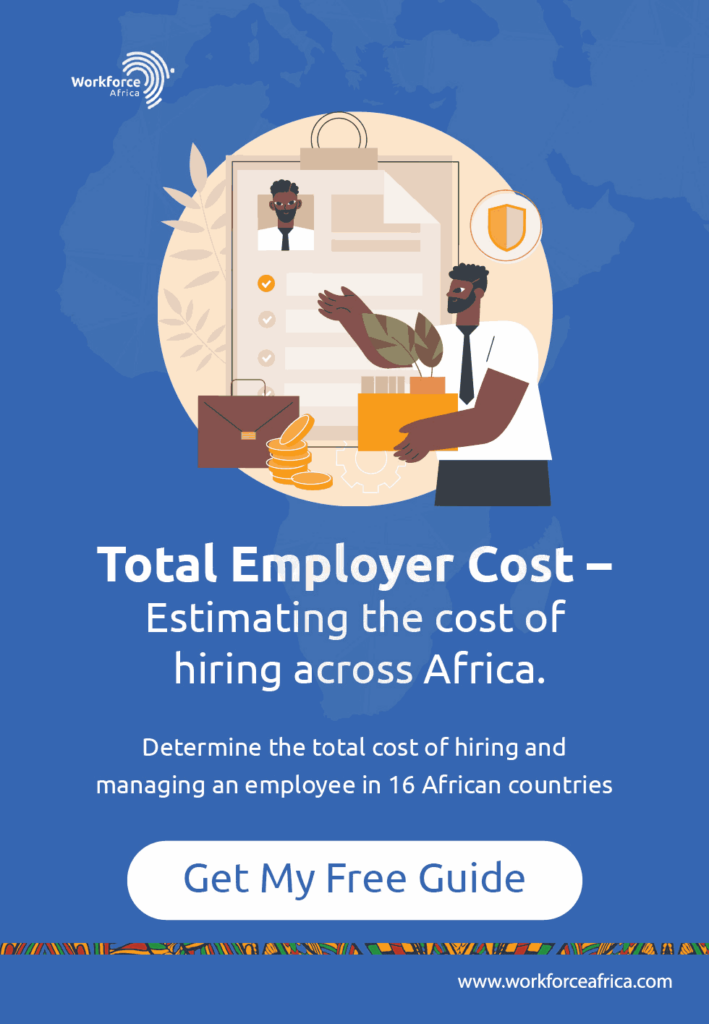
This Customer Service Week, we celebrate you — our clients. Your trust, feedback, and partnership drive everything we do. Thank you for being at the core of our mission.

When it comes to global outsourcing, client data protection is a major concern.
This article examines how global businesses outsourcing to Africa can implement robust security measures, conduct due diligence on third-party vendors.
Mstrict oversight to protect sensitive data, personal information security and maintain their customers’ trust.
In the modern digital landscape, data breaches, and cyber threats have emerged as prevalent and formidable challenges that organisations across the globe must confront, presenting significant risks to their operations and security posture.
As a result, client data protection has not just become a priority but a paramount priority for businesses, particularly regarding outsourcing. This is because when outsourcing,
companies must share sensitive data and critical operations with third-party service providers, making it crucial to maintain stringent security measures.
Over the last decade, companies worldwide have increasingly turned to outsourcing to Africa as a strategic business move, driven by its potential benefits.
These include operational efficiency, cost reduction, and access to specialised expertise and advanced technologies.
expertise and advanced technologies. However, outsourcing inherently involves handing over business processes to external providers, which exposes companies to potential security risks.
Consequently, secure outsourcing has become a top priority for businesses aiming to benefit from outsourcing while safeguarding their data integrity and confidentiality.
With the alarming rise of cyber threats in the digital era, organisations face mounting pressure to bolster their security measures against the increasing frequency and sophistication of data breaches, hacking attempts, ransomware attacks, and phishing scams.
This need for robust security becomes even more critical when outsourcing, as sensitive data and critical operations are handled by third-party service providers.
The stakes are alarmingly high regarding inadequate data security measures in outsourcing arrangements.
A single data breach incident can trigger a cascade of severe consequences, including crippling financial losses, irreparable reputational damage, and potential legal liabilities that could prove catastrophic for any organisation.
Furthermore, such breaches can critically undermine customer trust and confidence, which are the bedrock of any successful business.
The erosion of this hard-earned trust can have a far-reaching impact, impeding the company's market position, growth prospects, and overall competitiveness.
In this high-stakes digital landscape, the importance of data security in outsourcing is paramount and cannot be considered a secondary concern.
It must be treated as an utmost priority, requiring unwavering vigilance, robust security protocols, and a proactive approach to mitigating risks and safeguarding sensitive data entrusted to third-party service providers.
Establishing a robust legal framework through meticulously crafted client data protection Service Level Agreements (SLAs) is indispensable to fortify secured outsourcing arrangements.
These agreements must comprehensively delineate the service provider's obligations to safeguard client's data, explicitly outlining the specific security measures mandated for implementation and clearly stipulating stringent penalties for any instances of non-compliance.
This multi-layered approach sets unambiguous expectations and is a formidable legal bulwark, safeguarding against potential data breaches and mitigating the associated risks.
Another critical legal consideration is ensuring compliance with data privacy laws and regulations across various regions and jurisdictions.
These laws and requirements differ, and businesses and their outsourcing providers must thoroughly understand and strictly adhere to the applicable regulations.
Failure to adhere to established industry standards can have grave consequences, potentially leading to hefty financial penalties, legal proceedings, and irreparable harm to the organization's credibility and standing in the marketplace.
From a technical standpoint, organisations must mandate that their outsourcing partners deploy cutting-edge security technologies and robust measures to fortify customer data protection.
These essential safeguards involve various advanced solutions, including robust data encryption protocols, secure and hardened server infrastructure, multi-factor authentication mechanisms, and state-of-the-art antivirus.
Anti-malware solutions that leverage the latest threat intelligence. By insisting on these measures, businesses can significantly bolster their defensive posture.
Drastically enhancing data safeguards and mitigating the risks associated with potential breaches.
Regular security assessments and audits are critical to upholding an unwavering data security standard within offshore outsourcing engagements.
These regular assessments can help detect potential vulnerabilities and security lapses.
These security measures are regularly assessed and reinforced through proactive monitoring and timely remediation efforts.
These proactive measures contribute to sustaining a robust data security posture and compliance across our operations.
By embracing a culture of proactive vigilance facilitated by these regular assessments and audits, organisations can cultivate a heightened state of situational awareness, promptly address emergent risks, and reinforce their defensive posture.
Furthermore, these rigorous assessments and audits serve as a testament to the organisation's unwavering dedication to protect customers data and privacy.
instilling confidence in stakeholders and building an environment of trust – a fundamental pillar upon which successful outsourcing relationships are built and sustained.
Implementing stringent access controls is a critical operational imperative.
They serve as an impenetrable barrier against unauthorised access and mitigate the risks of potential data breaches.
This measure hinges on a judicious approach to granting access privileges, thereby restricting access to sensitive data and systems solely to those individuals whose roles and responsibilities necessitate such access.
By embracing this principle, organisations can significantly fortify their defences, minimising the attack surface and reducing the potential for malicious actors to exploit vulnerabilities.
This proactive stance enhances data security and promotes a culture of accountability and responsible data stewardship within the outsourcing ecosystem.
By integrating this operational measure into a broader data security strategy, offshoring firms can help global organisations.
fortify their defensive posture, thereby protecting their most invaluable assets in an increasingly complex and ever-evolving threat landscape.
Recommended Post: 5 Compliance Mistakes to Avoid When Expanding Into Africa
What relevant certifications does your organisation have?
Clearly state the data security policies and procedures currently in place.
What measures do you implement to ensure adherence to international data protection regulations across various jurisdictions?
What technical safeguards and security controls have you implemented to protect client data?
What management protocols and monitoring mechanisms do you implement for sensitive data access?
How frequently do you conduct rigorous security audits and penetration testing to assess your security posture?
What are your response plan and procedures for addressing potential security breaches?
What data security training and awareness programs do you provide to employees across Africa?
When it comes to ensuring secure outsourcing in Africa, selecting the right partner is as important as the business you do.
A reputable and trusted Employer of Record (EOR) and offshoring firm like Workforce Africa stands out as a reliable choice.
Offering high-quality offshore outsourcing services while seamlessly blending uncompromising data security standards.
Assess the EOR's standing within the industry, its longevity in the market, and its proven track record of delivering secure outsourcing services.
A well-established provider in Africa with a solid reputation like this is likelier to have robust security protocols and a deep understanding of compliance requirements to help your grow your business as you leverage the continent.
Prioritise a provider with recognised certifications and accreditations, such as ISO 9001. These certifications independently validate the provider's adherence to high standards.
Scrutinise the provider’s security infrastructure, including its data centres, networks, and the cutting-edge technologies it employs.
Inquire about their data encryption protocols, access control mechanisms, and their ability to adapt seamlessly to evolving security threats.
A reputable offshoring firm should have robust auditing and monitoring practices in place, including regular security assessments, penetration testing, and continuous monitoring for potential vulnerabilities.
Adopting a proactive stance enables us to preserve the potency of our security protocols over time and up to date.
Carefully review its data handling and privacy policies, ensuring they implement industry-benchmarked best practices, coupled with rigorous adherence to applicable data protection regulations.
These policies should clearly outline data retention, storage, and disposal practices.
As an esteemed service provider in Africa, Workforce Africa understands the critical role of data security in outsourcing.
And we are dedicated to providing our clients with the highest form of data security across all our services.
We prioritise robust security frameworks and meticulous compliance with industry benchmarks and regulations to ensure your data is safe.
Whether you’re looking to outsource IT, accounting, back office, legal services, business processes, or any other function across African countries, you can bank on us to provide you with outsourcing solutions that consistently meet and surpass your expectations,
ensuring a secure and seamless experience tailored to your unique needs.
In this modern age, data security is a non-negotiable aspect of outsourcing, especially when it comes to protecting client data.
Businesses must prioritize secure outsourcing practices to safeguard sensitive information. This also includes compliance to legal and regulatory requirements, as well as maintaining customer trust.
By adopting a holistic approach that seamlessly integrates legal, technical, and operational measures, businesses can ensure the security of their client data throughout the outsourcing lifecycle.
By partnering with a reliable provider like Workforce Africa, you can confidently unlock the vast potential of outsourcing while maintaining an unwavering commitment to data security.
Schedule a free consultation today to learn how your organisation can easily leverage African opportunities to manage your operations compliantly.